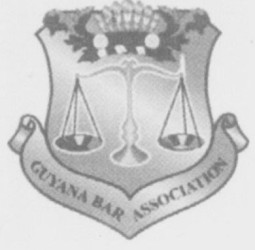Introduction
Apart from the economic meaning of the word, the acronym POOR, coined by Robert Kiyosaki, as Passing Over Opportunities Repeatedly seems an apt description of the country. Two recent announced events in our society cause reflection on the elements and indicators of a POOR Guyana.
 The first is the establishment of a Steering Committee on Constitutional Reform as a start of another the process of constitutional reform in Guyana. The second is the 2015 Budget. The nexus between the two is that the first provides the opportunity, among other things, for the recognition of all rights while the second seeks to provide the resources through which those rights can be realised by our citizens.
The first is the establishment of a Steering Committee on Constitutional Reform as a start of another the process of constitutional reform in Guyana. The second is the 2015 Budget. The nexus between the two is that the first provides the opportunity, among other things, for the recognition of all rights while the second seeks to provide the resources through which those rights can be realised by our citizens.
But we come up with more than a linguistic problem. The rights which provide the opportunity are those which require the state and its organs to take positive action to progressively realise the rights concerned. In the human rights lexicon these rights are at times called ‘positive rights’. The wording of the rights indicates that “every person has a right to” as opposed to the wording of ‘negative rights’ which have as part of the language base “no person shall be hindered” followed by a list of exceptions or limitations which allow the state in permissible circumstances to act contrary to the rights recognised. We can describe that situation as a ‘cat boil’ situation of human rights, a give and “tek back”.
With positive rights there is no obvious give and take back. Positive rights have as the formal label economic, social and cultural rights. The primary source is the United Nations Covenant on Economic, Social and Cultural Rights (the Covenant), a covenant which is expressly incorporated into the Guyana Constitution.
The rights recognised by the Covenant include: the right to work, the right to favourable conditions of work, the right to social security, including social insurance, a right of the family, the right to an adequate standard of living for himself and his family, including adequate food, clothing and housing, and to the continuous improvement of living conditions, the right to the enjoyment of the highest attainable standard of physical and mental health, the right of everyone to education, the right of take part in cultural life; The Covenant provides further details regarding the rights identified. Opportunity which should not be passed over in the intended constitutional reform process is that of further recognising some of the rights identified.
The Limitations
But there are also, limitations which have been utilised to constrain the recognition and realisation of positive rights. The first limitation of the “tek back” in the cat boil analogy emerges from the Covenant itself. The Covenant requires in Article 2(1) that:
“1. Each State Party to the present Covenant undertakes to take steps, individually and through international assistance and co-operation, especially economic and technical, to the maximum of its available resources, with a view to achieving progressively the full realisation of the rights recognized in the present Covenant by all appropriate means, including particularly the adoption of legislative measures.” (Emphasis added).
Full realisation by any measure takes time, the question being how much time. Analysts with an eye for development would be interested in examining the budget to determine the allocations which provide for the progressive realisation of rights. The 2015 budget is however a short budget. It can be hoped that the 2016 budget provides for greater realisation of rights.
The South African model of recognising and incorporating positive rights into a revised and reformed constitution is instructive. Now, rights to privacy, health care, food, water, social security, adequate housing, education, language etc. are recognised in the Bill of Right provisions of the South African Constitution of 1996. South Africa is not the only example of expressly recognising positive rights; examples can be seen from Ghana, Malawi, Namibia, Nigeria and Uganda.
Strengthened by these rights South Africans are not hesitant to seek redress from the South Africa Constitutional Court. The Court of law has a role to play to measure the actions of the state. Whether the Court can be part of the POOR description is a long discussion for several other contributions on the part of the Bar.
Concluding Thoughts
The positive signs exist; a steering committee for constitutional reform provides an opportunity for our constitutional framework to be enriched. There are opportunities to make specific provisions for the recognition of the rights, to make the budgetary allocations and resources available to allow the citizens to benefit positively from the rights. In that way Guyana can be a RICH society in every sense of the word.
